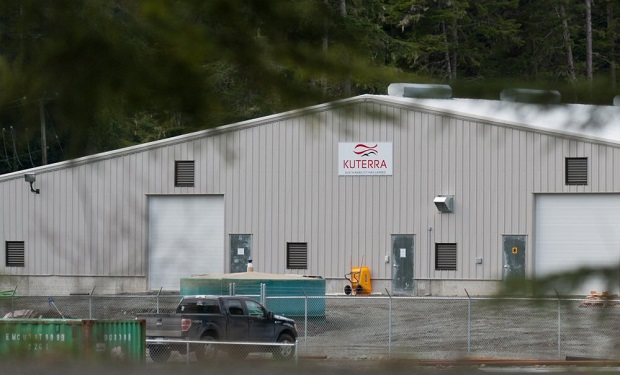
News
Industry update
Whole Ocean foresees ‘smooth transition’ in takeover of B.C. land-based salmon farm
December 23, 2019 By Nestor Arellano

American aquaculture company, Emergent Holdings has taken a 15-year lease on a pioneering land-based Atlantic salmon farm in British Columbia.
Kuterra LP, which has a fish farm in Port McNeil, Vancouver, is considered to be the longest-running commercial producer of Atlantic salmon using land-based systems in North America. The facility is owned by the ‘Namgis First Nation.
Emergent, which owns recirculating aquaculture system producer Whole Ocean intends to use the expertise gained by Kuterra to boost the American company’s expansion of its land-based aquaculture operations in the U.S. East Coast. Emergent has been developing a state-of-the-art RAS facility in Bucksport, Maine.
“This will be a smooth transition as Emergent Holdings and Whole Oceans have been financially and operationally managing the facility for the past year,” Jacob Bartlett, CEO of both Emergent and Whole Oceans, said in a press release. “Emergent Holdings and Whole Oceans look to bring advancements in technology to Kuterra to make it more effective, productive and stable.”
Back in June, Emergent Holdings and Kuterra have agreed on an offer that could give the US investor a majority stake in the British Columbia-based aquaculture pioneer. Emergent said the deal gave it an 88 per cent stake in Kuterra.
However, a month later the ‘Namgis First Nation rejected the agreement after a vote by its members. It appeared that a provision giving Emergent a 75-year lease on the community-owned land was the sticking point. Under ‘Namgis law any leasehold agreement over 49 years requires approval by referendum.
The deal announced last Friday now provides for a much shorter lease. The two companies have been sharing resources for several months now.
As much as $10 million in government money philanthropic funds went into the development of Kuterra. The facility was built to further the plans of the ‘Namgis First Nation to develop next-generation Atlantic salmon aquaculture on land.
The facility began producing salmon about seven years ago. Today, the facility is producing sushi-grade Atlantic salmon.
Print this page